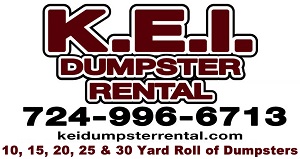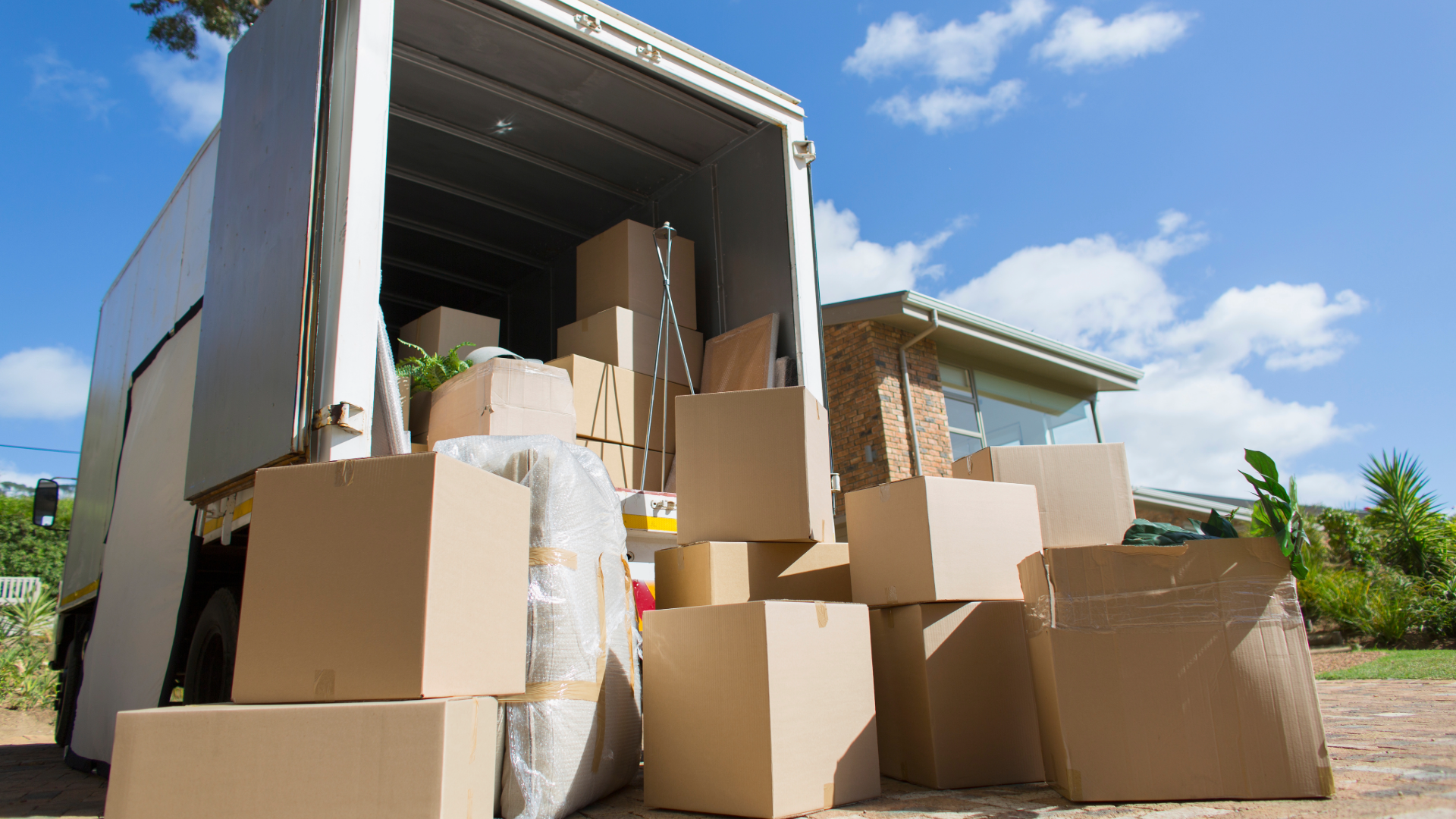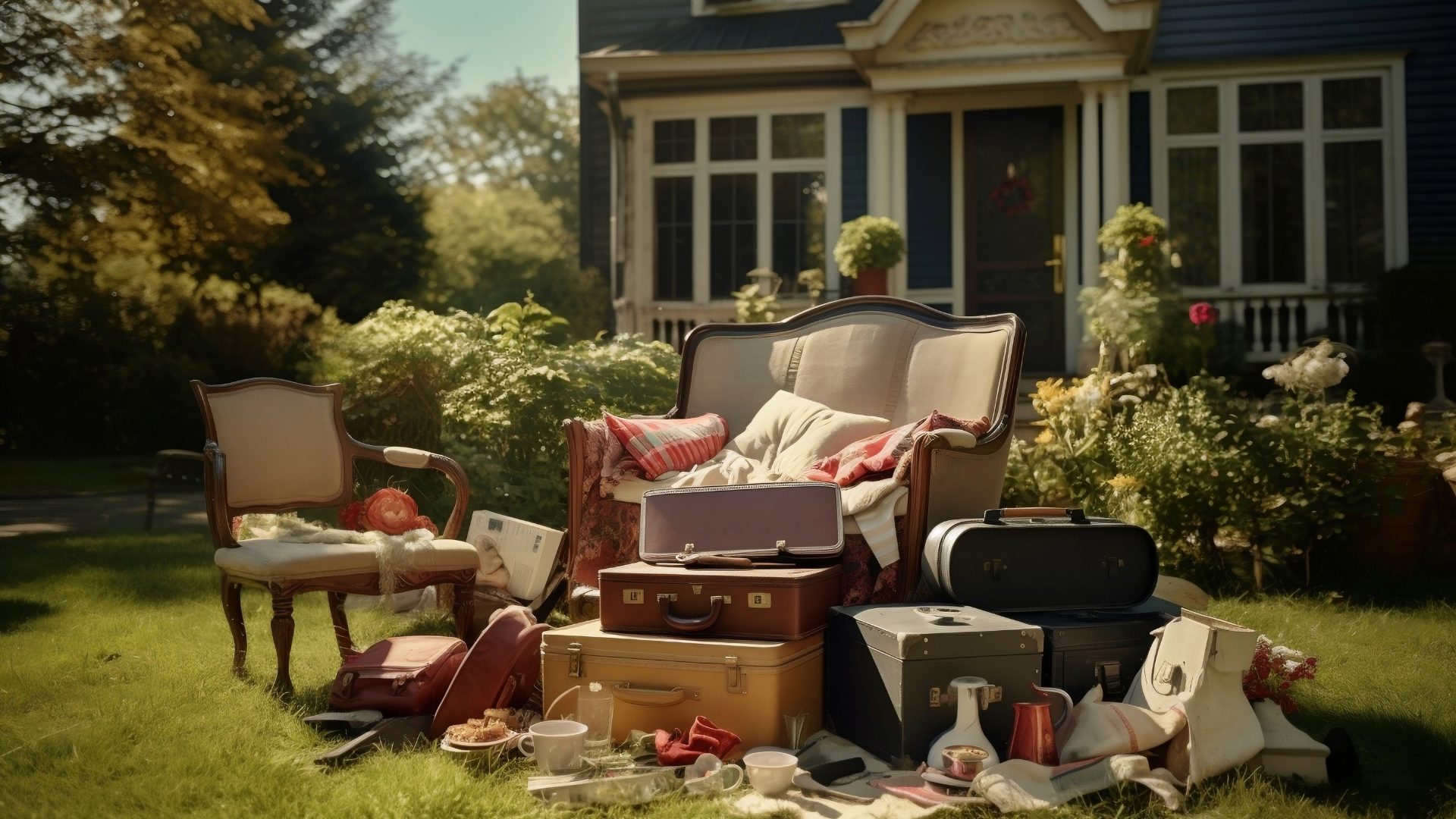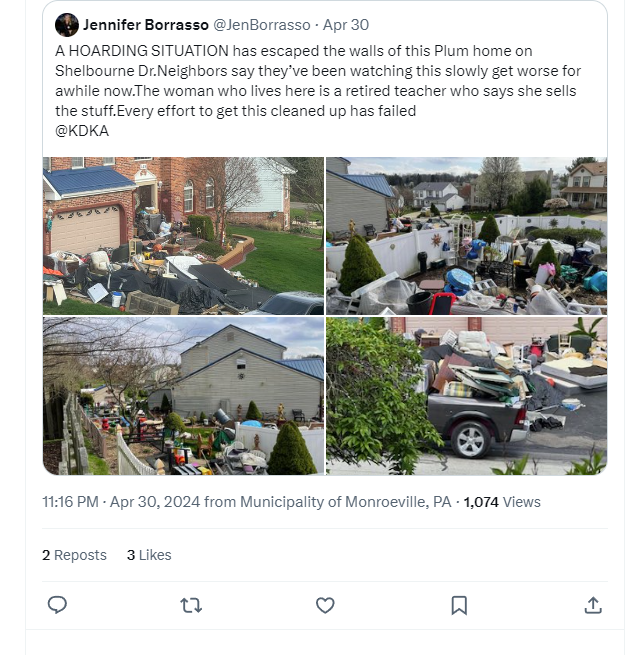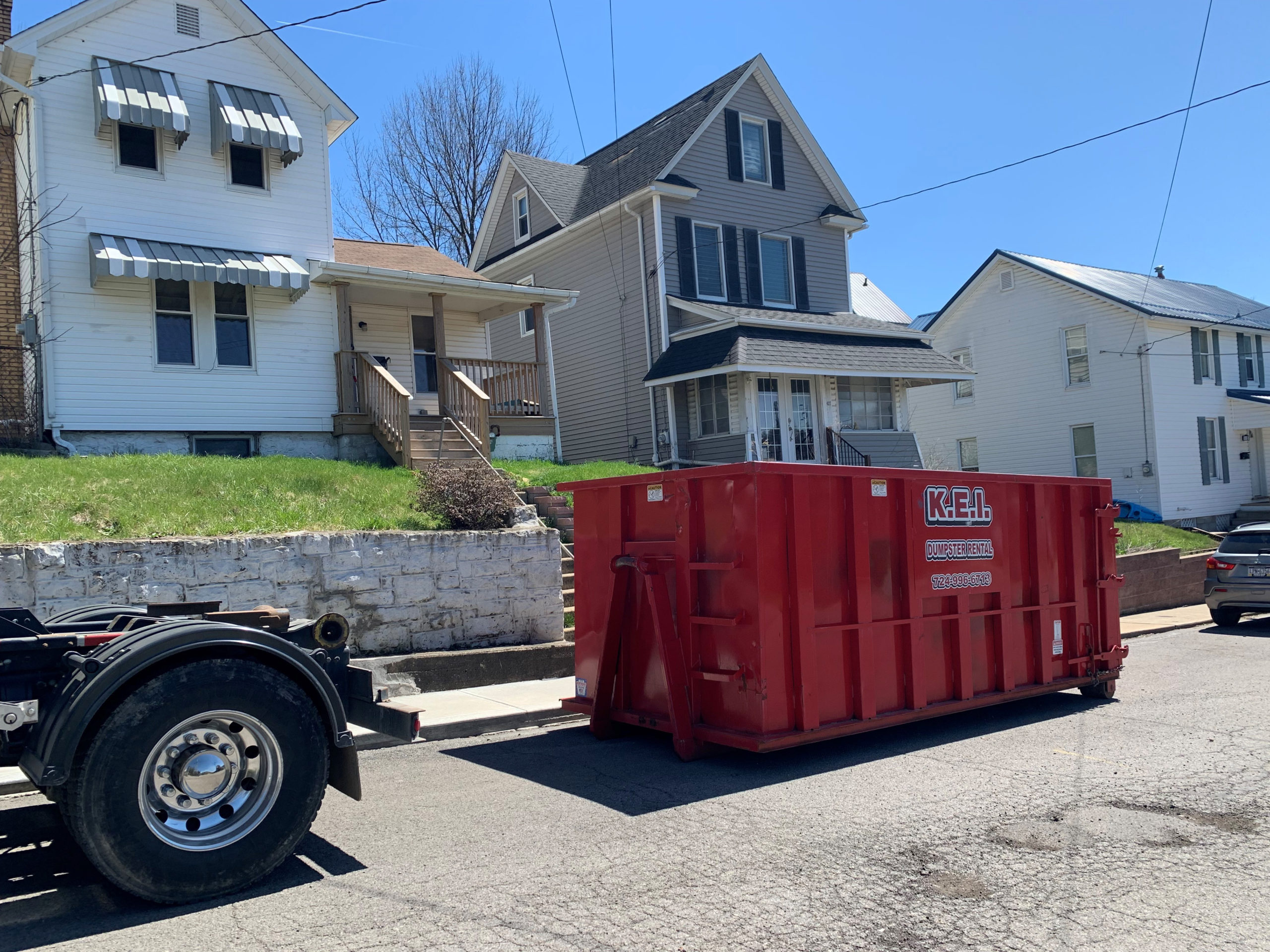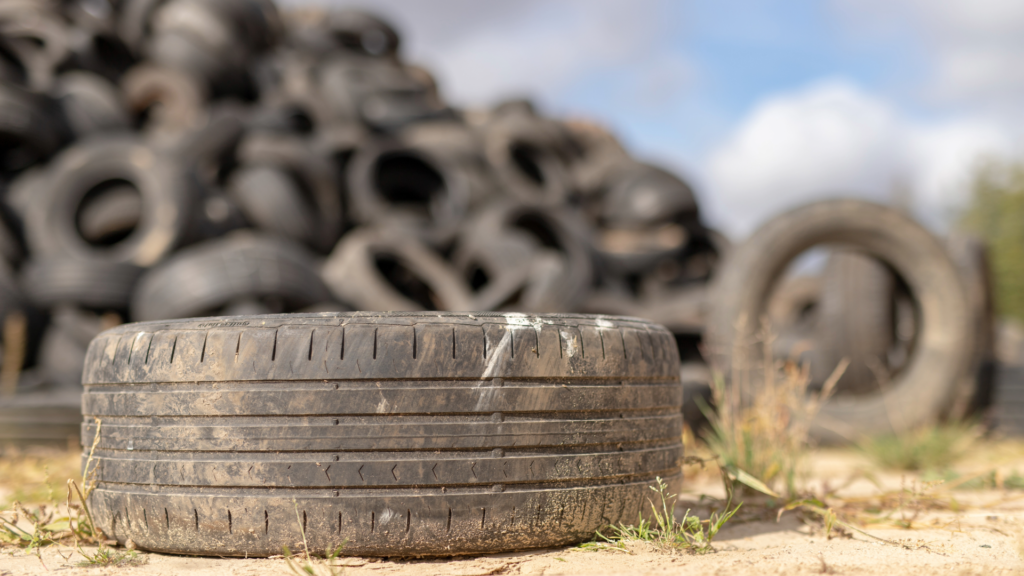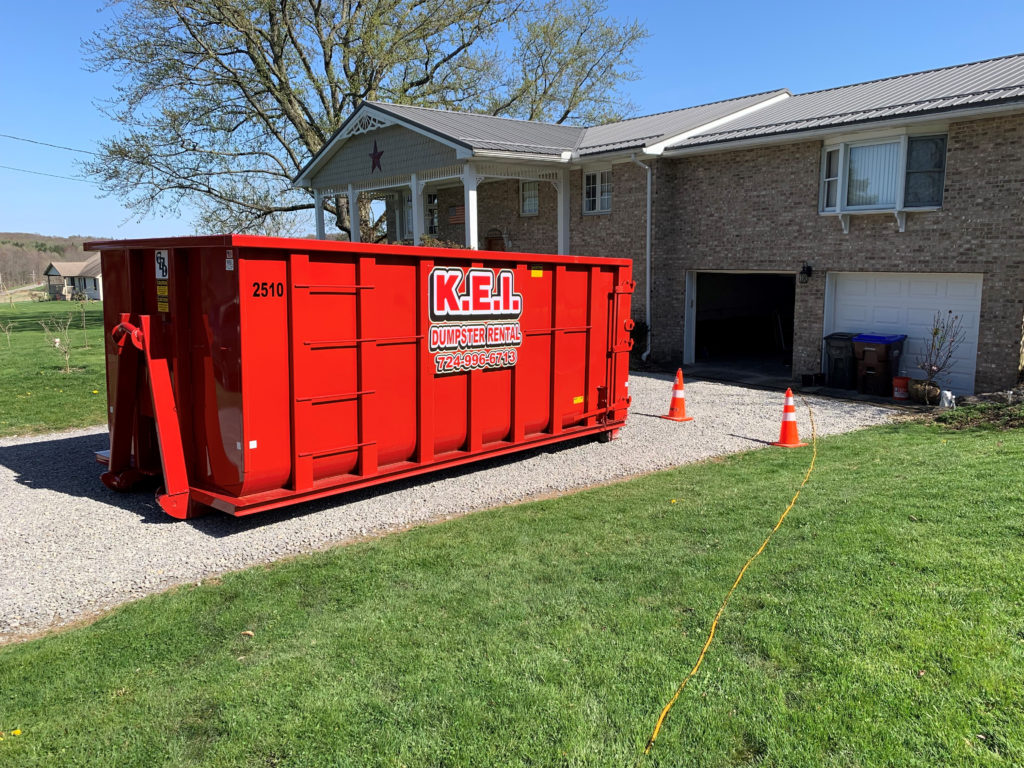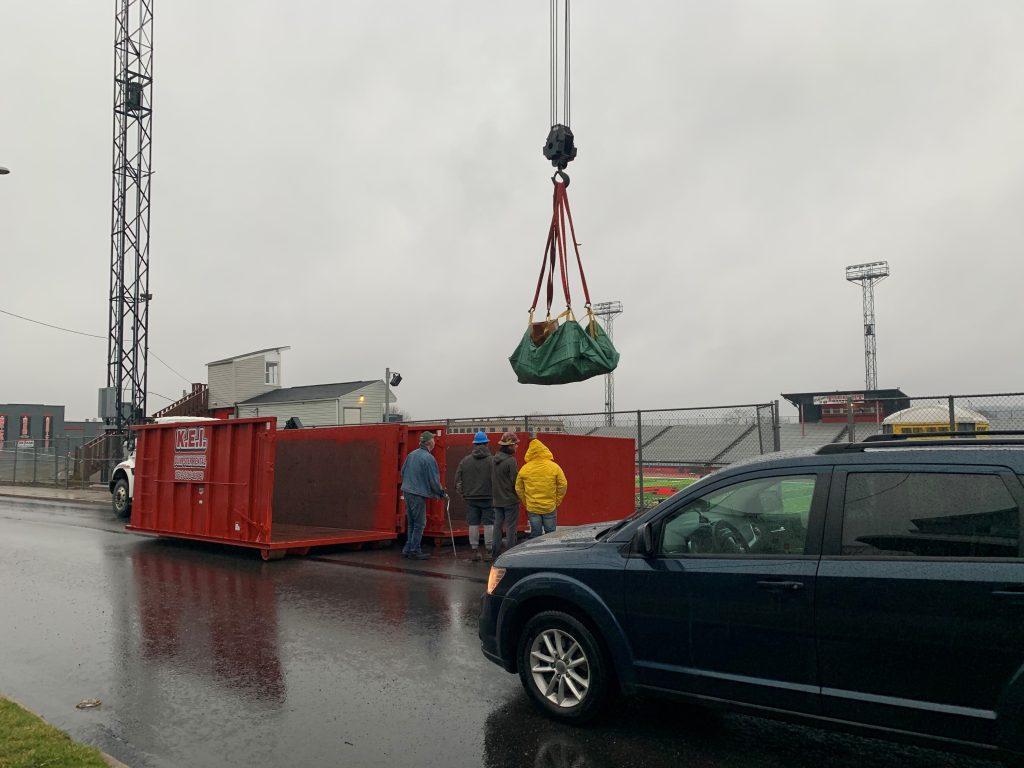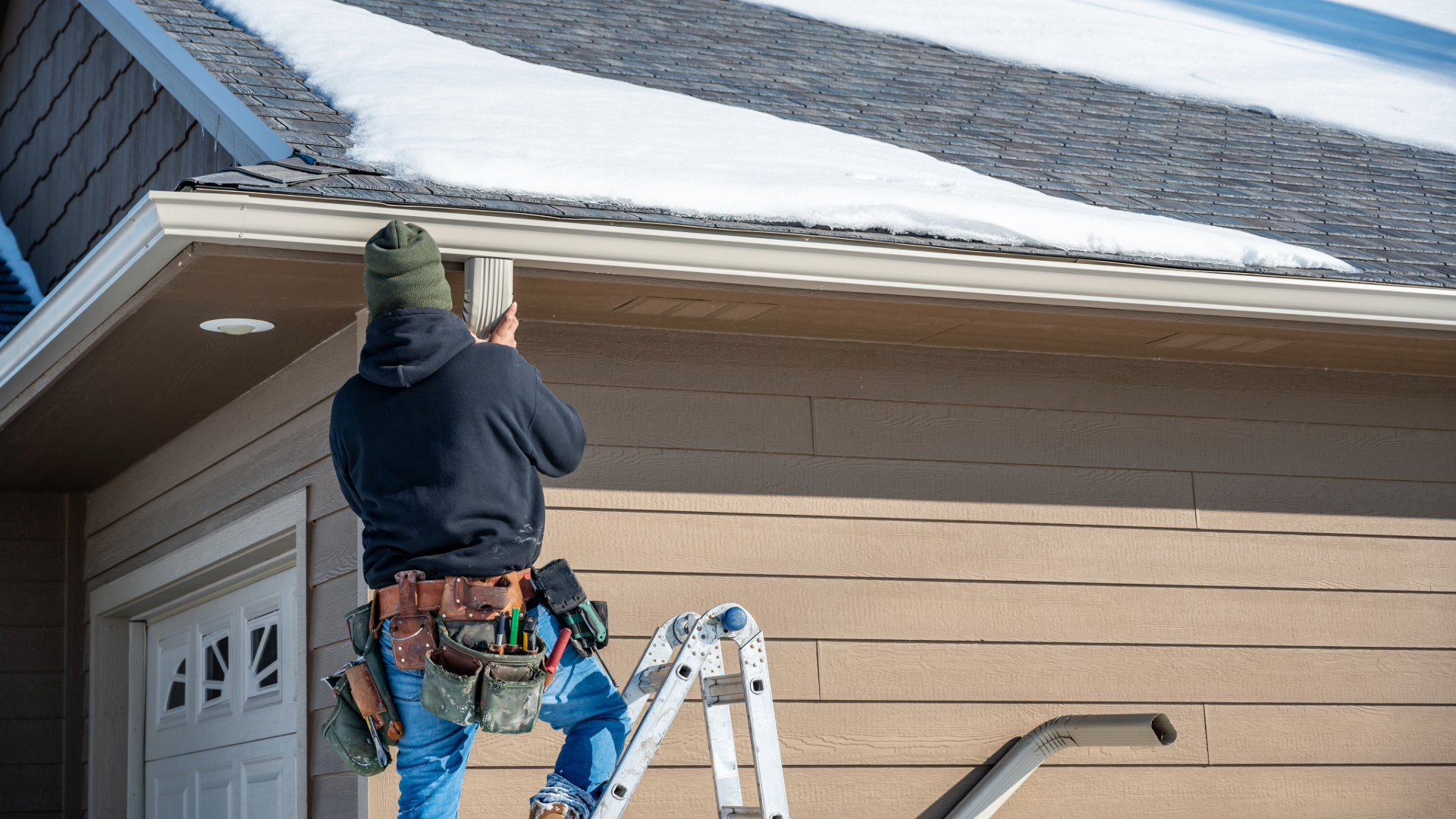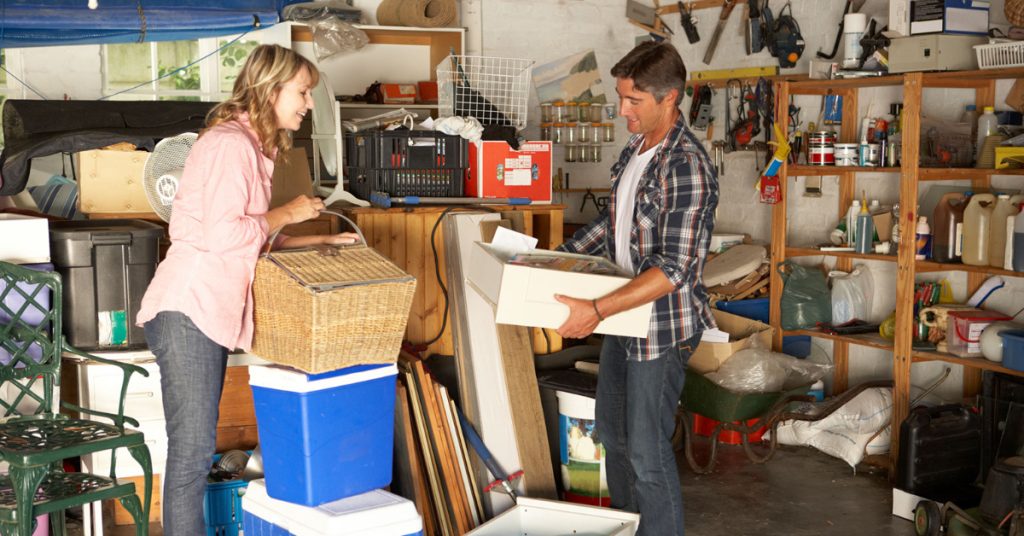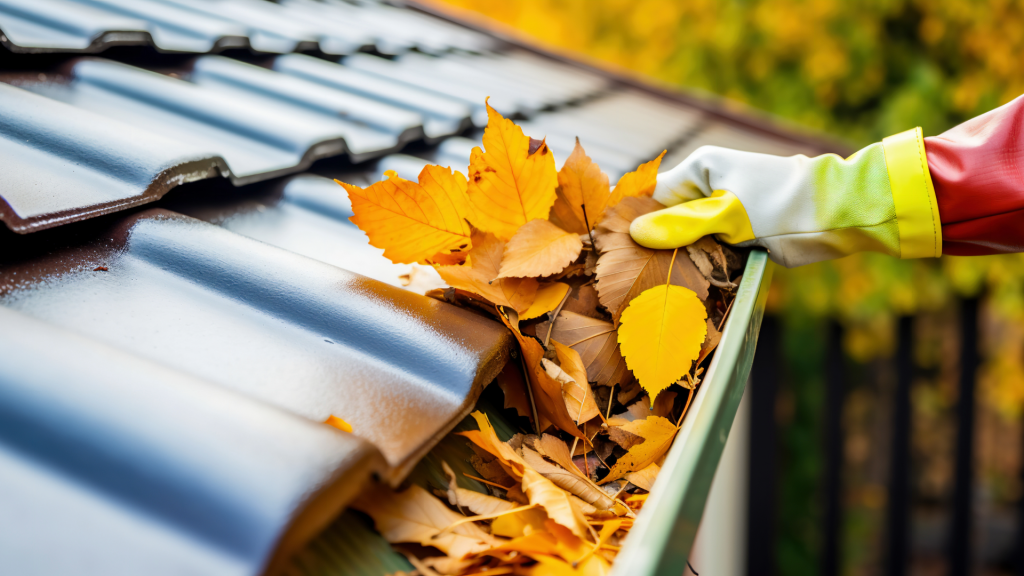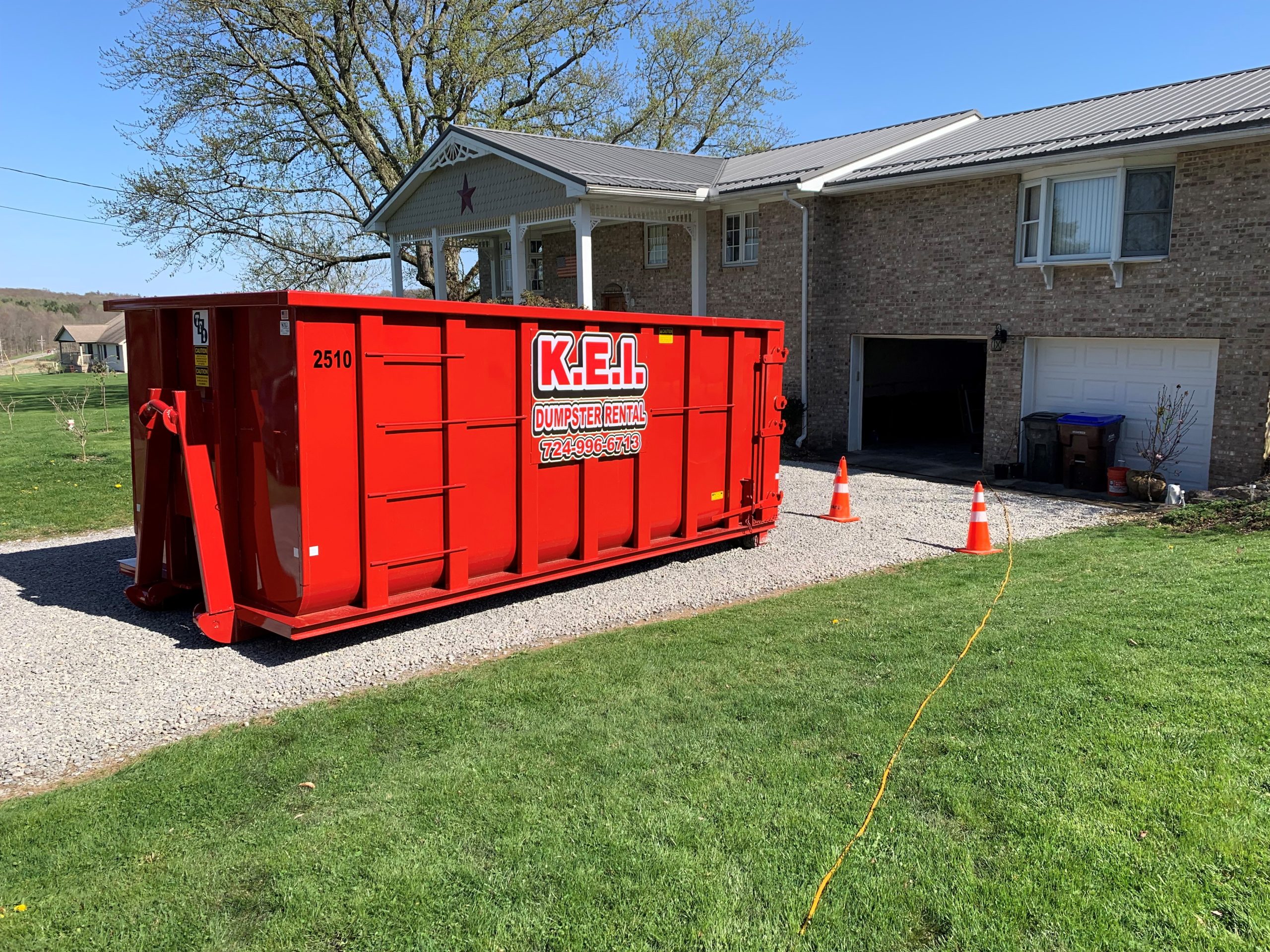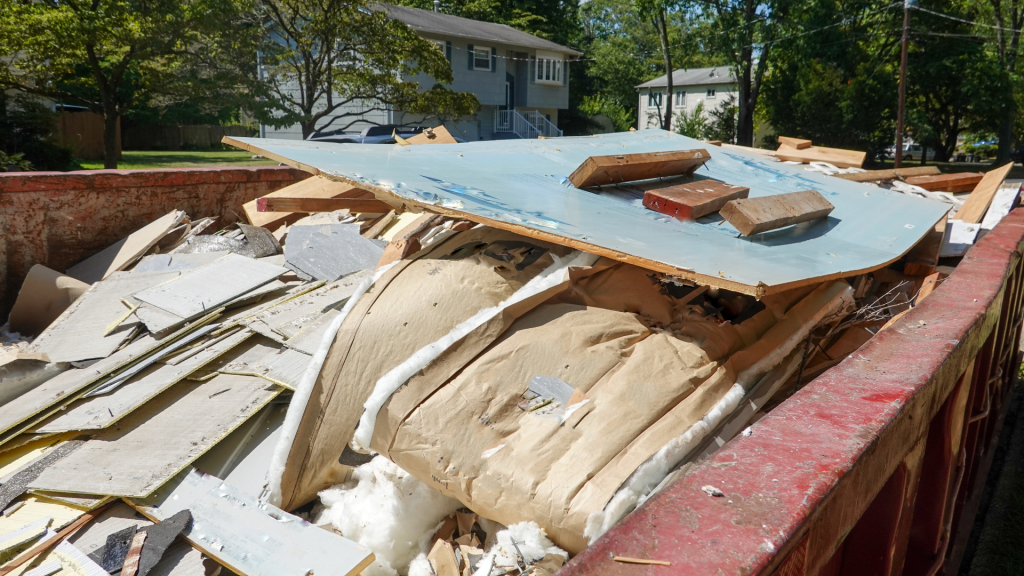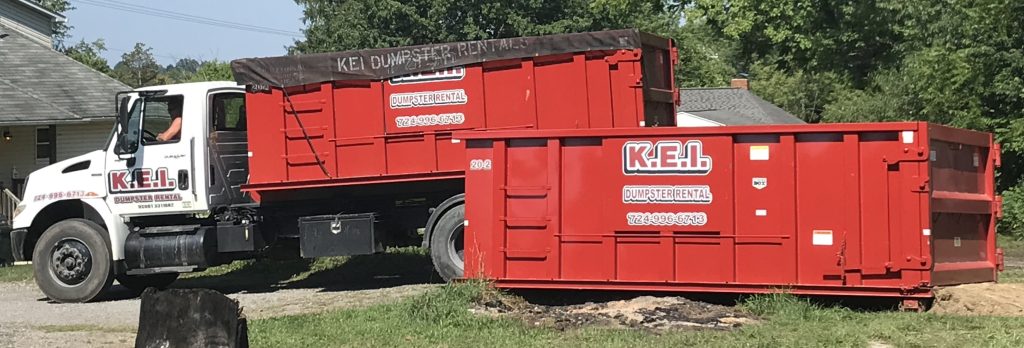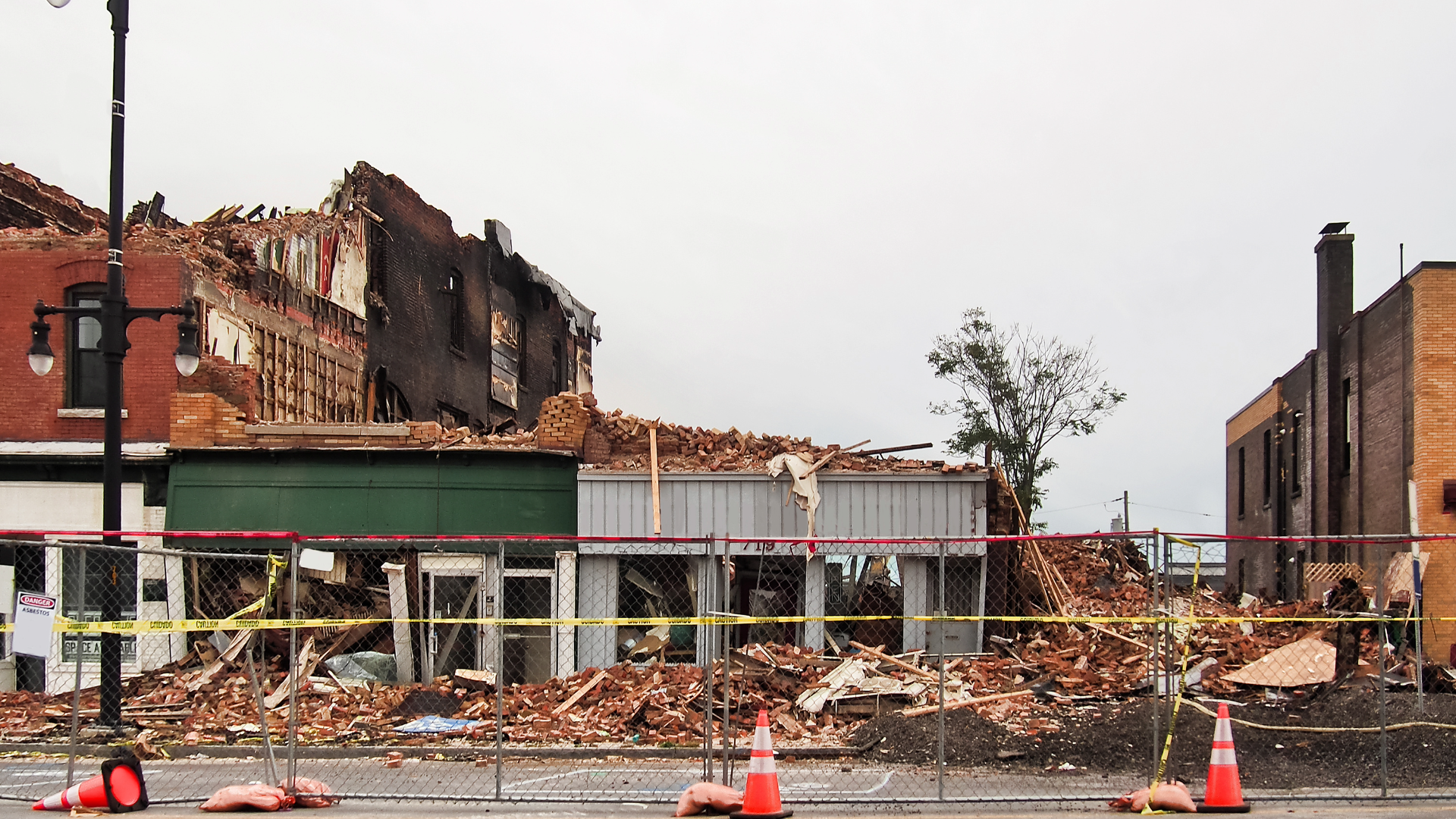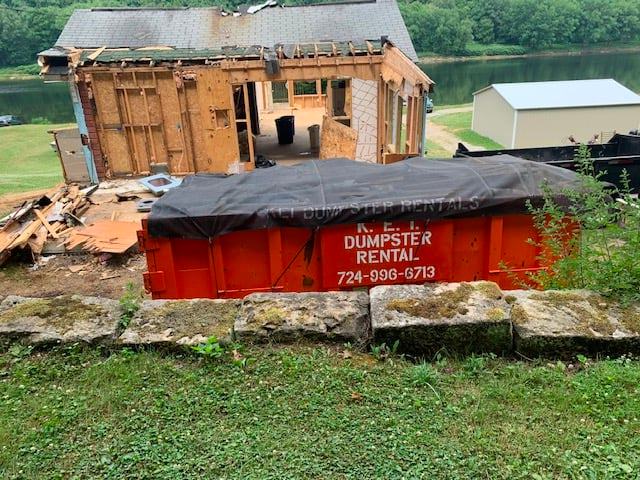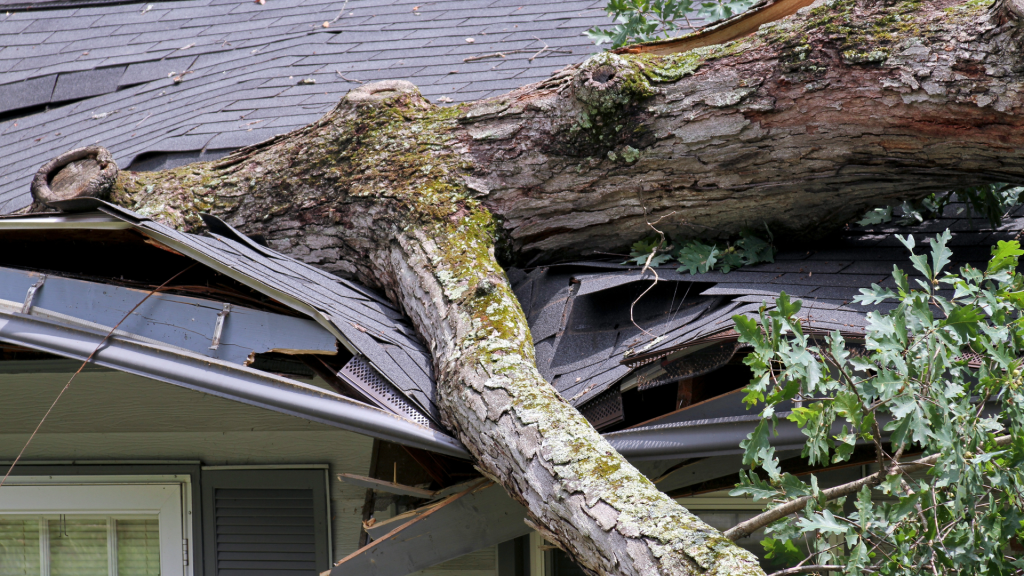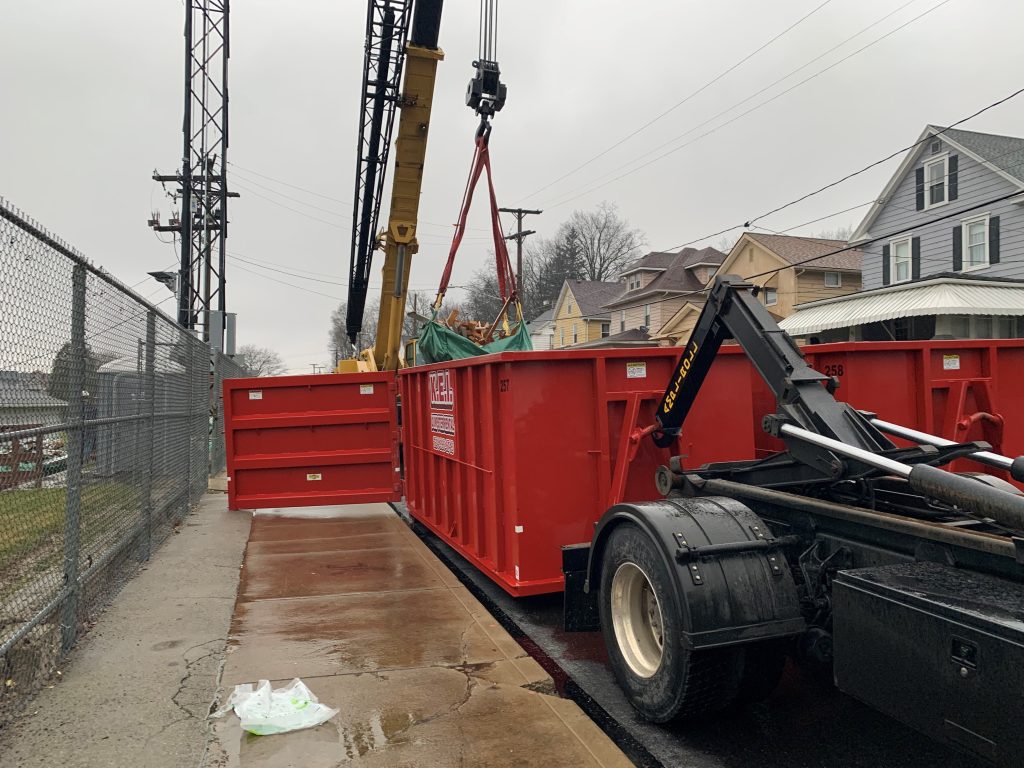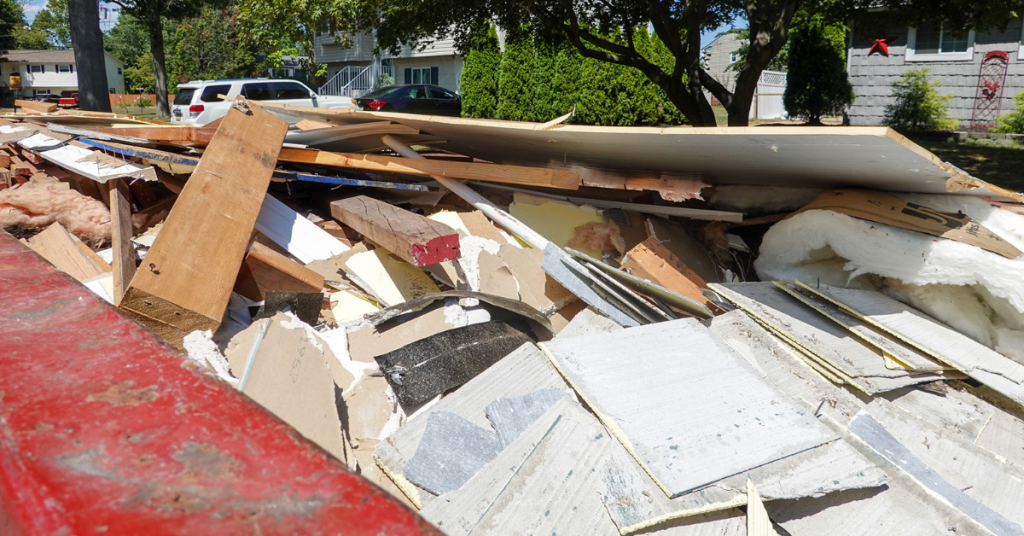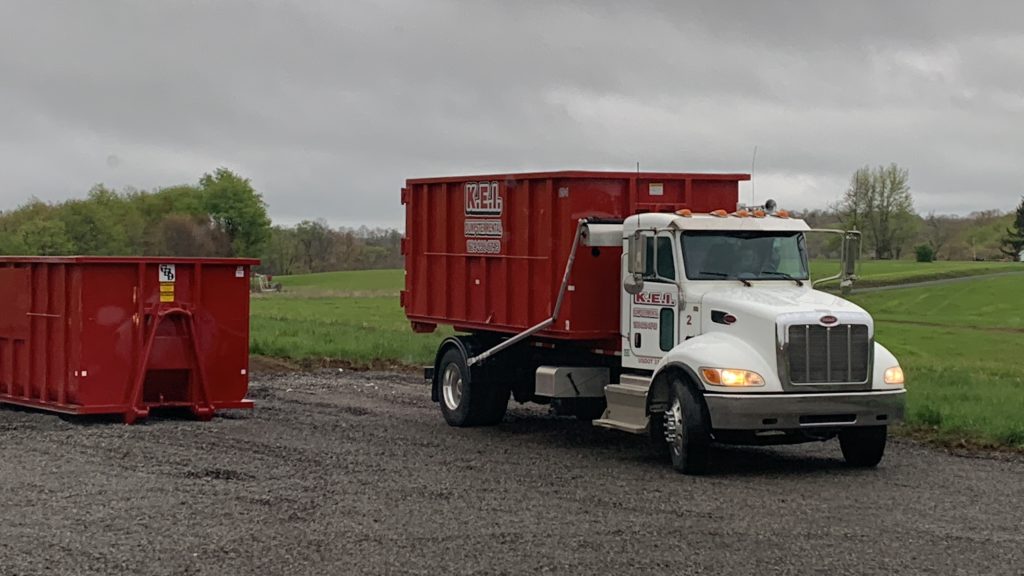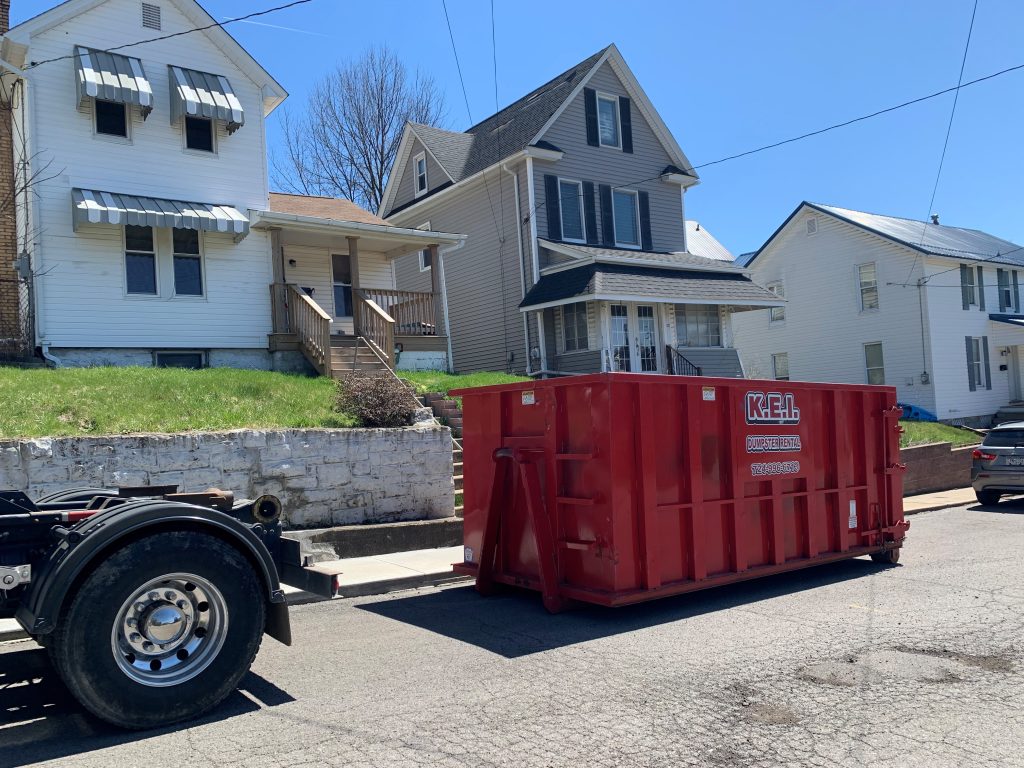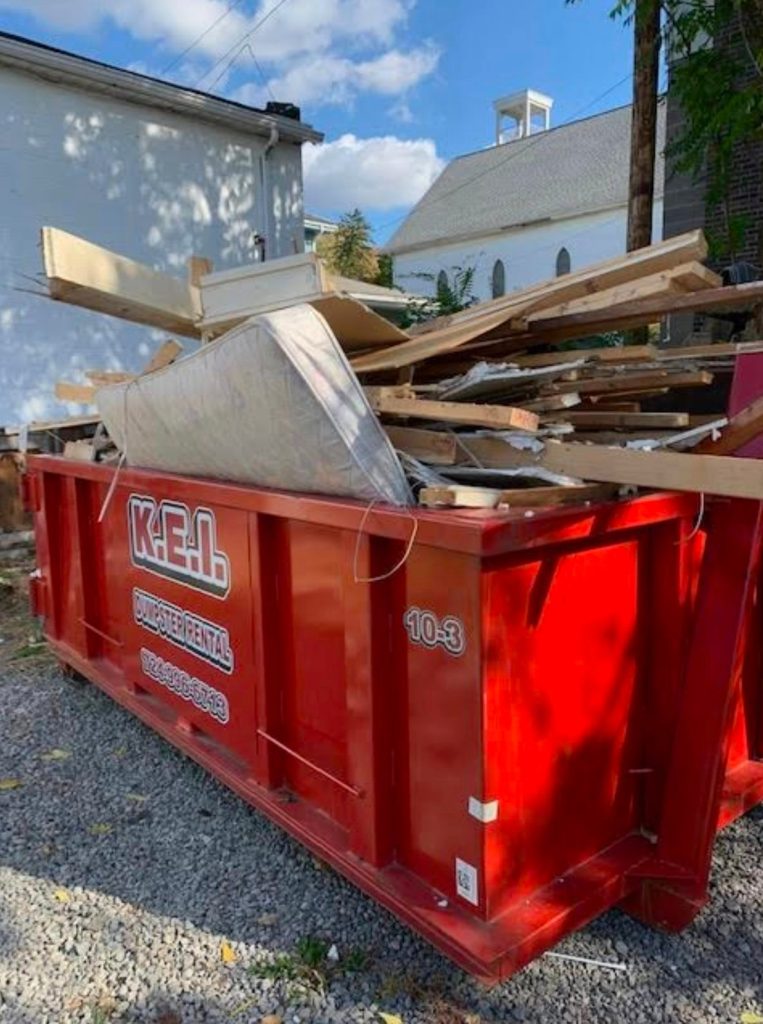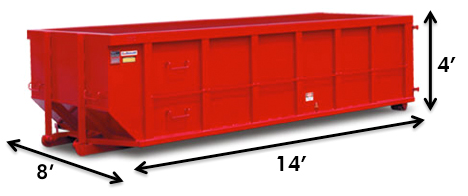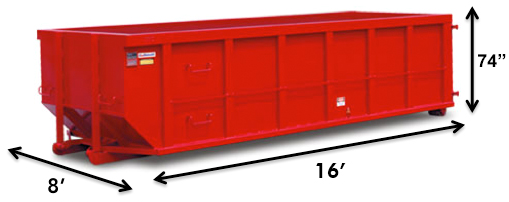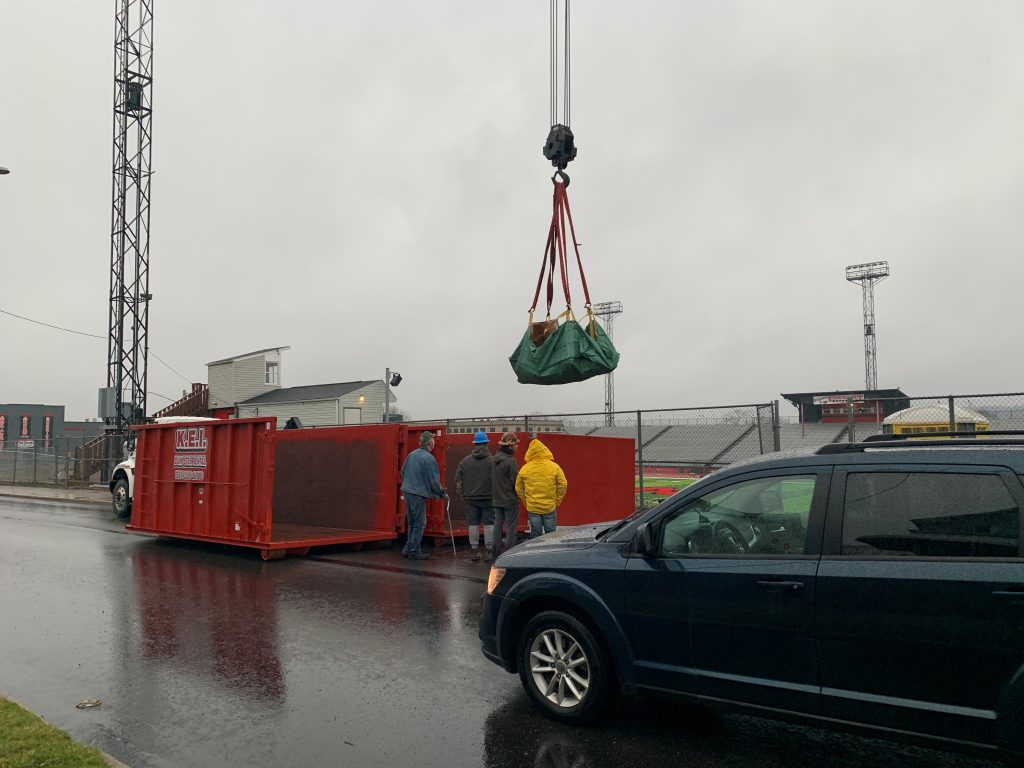Moving makes the top 10 list of the most stressful life events. According to a recent study published in the Journal of Psychosomatic Research, it’s right up there with the death of a loved one, divorce, and job loss1.
The thought of packing up an entire household, transporting it to a new location, and then unpacking it all is overwhelming for most people. Using a dumpster to declutter your home before moving day can help alleviate some of the stress.
Taking the time to sort through your belongings and dispose of unnecessary items simplifies your move, saves time, and creates a fresh start in your new place.
Use the practical tips in this blog to maximize the benefits of a dumpster to declutter to make your transition as smooth and efficient as possible.
Why decluttering is essential before a move
Moving to a new home is a major life event that comes with a unique set of challenges and opportunities.
Decluttering before a move is more than a practical step. It’s a transformative process that makes transitioning to your new space smoother, more efficient, and emotionally rewarding. By reducing the physical and psychological burdens of moving, you set yourself up for a more positive relocation experience.
Here’s why.
- It reduces the amount of stuff to pack, move, and unpack
One of the most obvious (and immediate) benefits of decluttering before a move is the reduction in volume of items you must handle. Take a systemic approach to sorting your belongings, donating and discarding the items you no longer need. Dumpsters declutter your home faster and more efficiently by giving you a convenient place to dispose of unwanted items.
Fewer items to pack mean fewer boxes, less packing materials, and a shorter time spent loading and unloading. It - It saves time and effort during moving
Every item you decide to keep requires packing, transporting, and unpacking in your new location. Decluttering beforehand streamlines the entire moving process. Packing fewer items is quicker and means less trips between your old and new place. If you’re moving a significant distance away, fewer boxes can mean the difference between needing one moving truck or two. - It creates a fresh start in your new home
Moving is an opportunity for a fresh start that leaves unwanted clutter behind. Bringing only the items you need, love, and use regularly to your new space allows you to set up your new home with intention and purpose.
Starting in your new space with a clean slate removes the stress and frustration of dealing with items you didn’t want before and resent dragging along for the ride. Your new home should reflect your lifestyle and aspirations, not serve as a storage space for outdated or unused items. - It reduces stress and anxiety
Clutter increases stress and anxiety2. The sight of piles of unused or unwanted items can overwhelm you and cause a mental burden. Decluttering before your move reduces this source of stress by creating a more organized and simplified moving process. You can focus on the excitement of your new place instead of feeling bogged down by chaos and disorder.
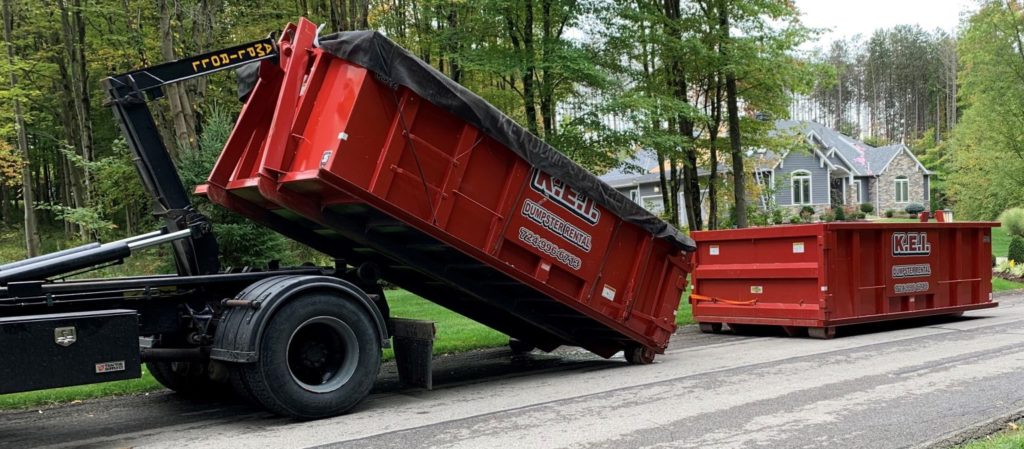
The benefits of using dumpsters to declutter
Humans accumulate a lot of stuff. How much stuff, exactly?
Well, household moves outside the U.S. weigh between 2,500 pounds and 7,500 pounds3. An entire industry – self-storage – has emerged to handle the overflow that no longer fits inside our homes and garages.
If looking around at all that stuff makes you feel like you’re about to have a full-blown panic attack, it’s time to consider a dumpster to declutter before the big move.
Dumpsters make decluttering more efficient by providing a central and convenient location to toss unwanted items as you pack up each room in your home for the move. Always donate items that are in good condition and only toss out things no one else might find useful.
Speaking of packing, with less clutter overwhelming your space, the process becomes more manageable. You can save yourself significant money by eliminating unneeded items instead of paying extra to move them to your new location.
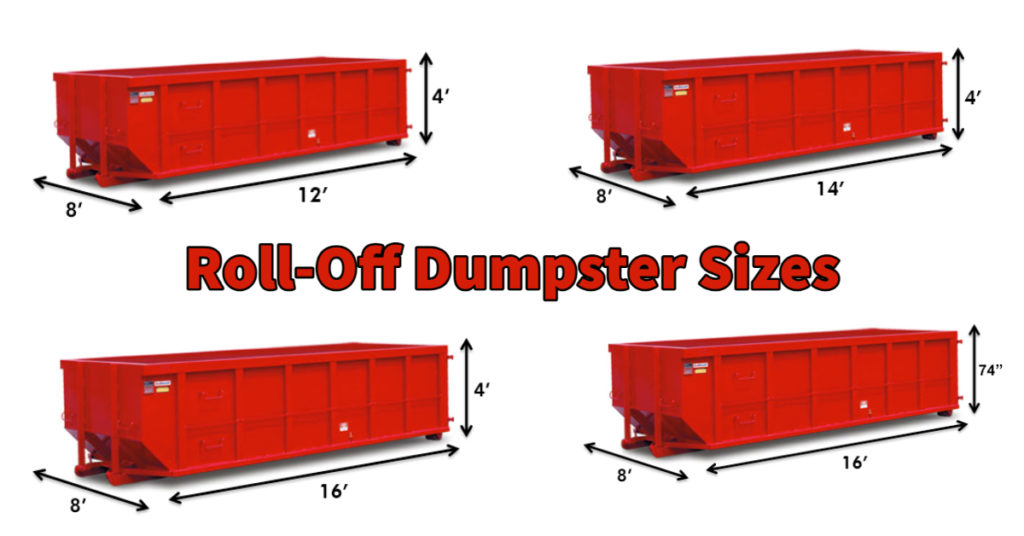
Choosing the right size dumpsters to declutter your home
What could be more convenient than having a dumpster – or two – in your driveway to efficiently clear your home of unwanted items? Short of magical elves that pack up and transport your stuff for you, not much.
However, the key to using dumpsters to lessen your burden during a move is to choose the correct size for the job.
You don’t want to run out of space or overpay by choosing a larger size than you need. Here are some tips for right-sizing your roll-off dumpster.
- Take a walk-through of your home. Estimate the amount of debris and unwanted items you plan to discard before your move. Consider any larger items like appliances and furniture. Pro tip: furniture can be broken down by removing legs and other accessories to minimize the amount of space it takes up in a dumpster.
- Measure the available space. Depending on where you live, you may have limited space for accommodating a dumpster rental. If you have more debris than space to house an adequate-sized dumpster, you can request fill-and-replace service with a local dumpster rental company to use a smaller dumpster to get the job done.
- Consider dumpster dimensions. A 10-yard dumpster typically works for a one-bedroom apartment or small single-family home. Larger homes with multiple rooms and occupants may be better served with a 20-yard dumpster.
- Rent for the right duration. Most dumpster rental companies typically provide a dumpster for 7 to 10 days as part of the standard rental agreement. If you need a more flexible rental period, talk with the company to make other arrangements.
Not sure what size or type of dumpster you need for your big move? Don’t hesitate to consult with the dumpster rental company. Experienced professionals can provide insights based on your specific needs and the type of materials you plan to discard.
Dumpsters declutter your mind and your home
Moving to a new home doesn’t have to be your worst nightmare. Dumpsters declutter your old space so you can get a fresh start in your new location.
By having a convenient place to toss unusable items at your doorstep, you can streamline the entire process and eliminate the need for multiple trips to the local dump (or hoping your weekly trash pickup will accommodate your extra discards).
Say goodbye to the stress of moving unwanted items and hello to a roll-off dumpster rental to make moving day a breeze. Give KEI a call today to schedule the right-sized dumpster for your move.
Sources
- The social readjustment rating scale. sciencedirect.com. Accessed June 4, 2024.
- Speaking of Psychology: Why clutter stresses us out… apa.org. Accessed June 4, 2024.
- America’s Clutter Problem. time.com. Accessed June 4, 2024.
